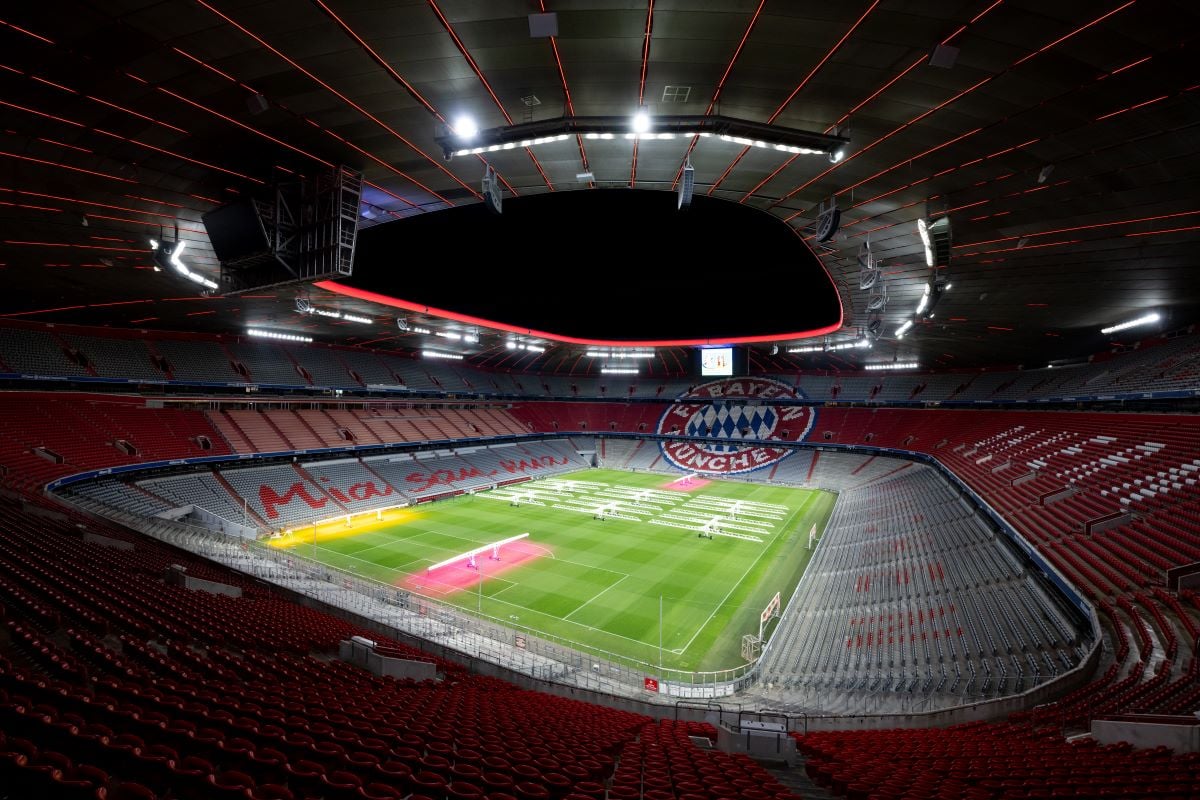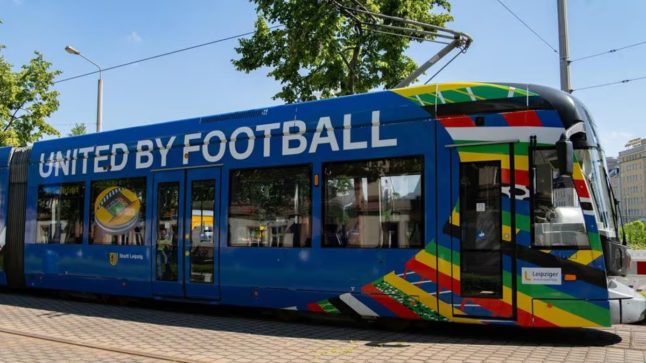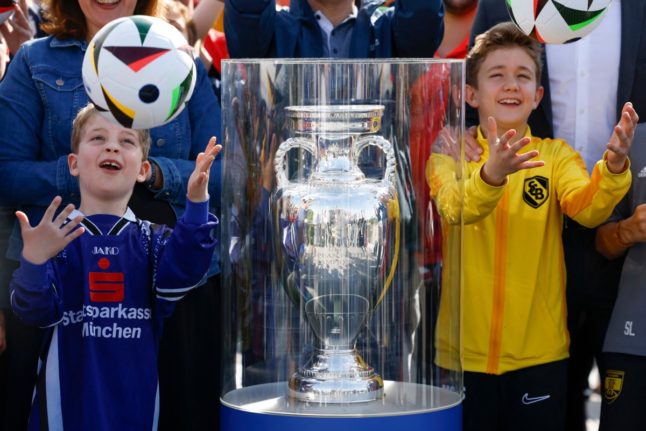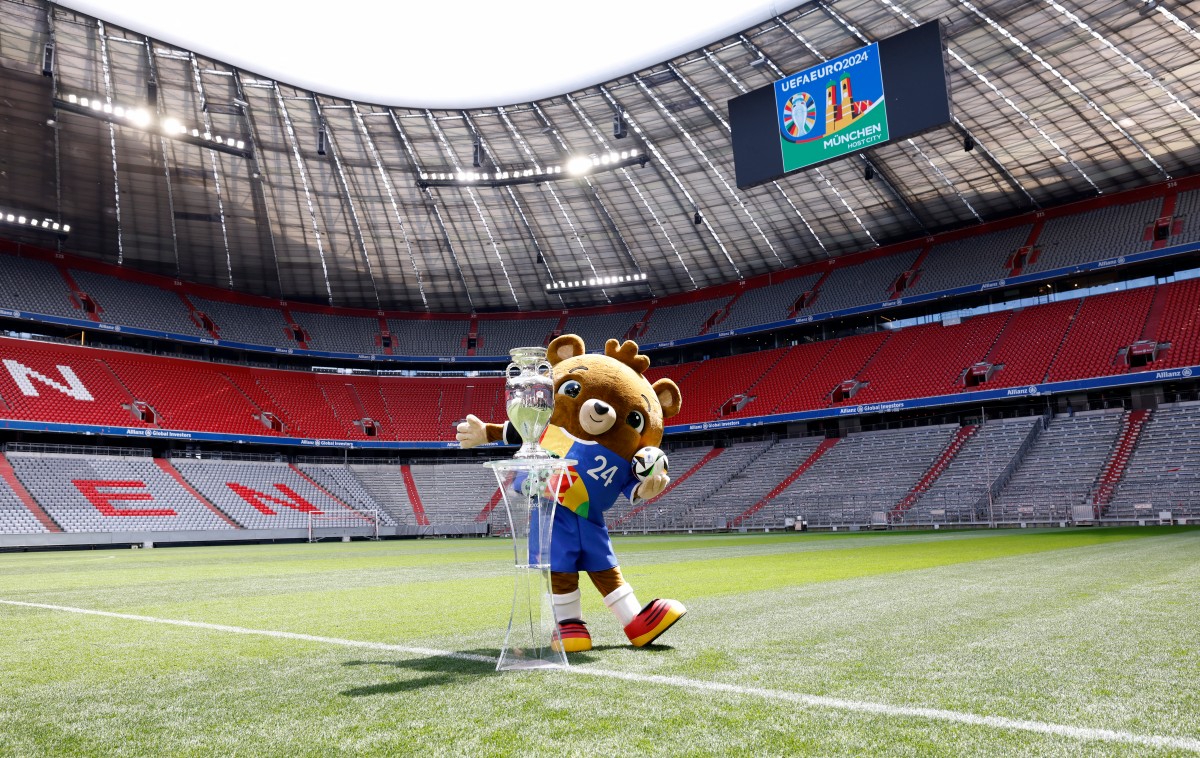The 2024 UEFA European Football Championship, often simply called Euro 2024, will be hosted in Germany.
A total of 24 teams will compete in the month-long tournament, which is scheduled from June 14th to July 14th. In total 51 games will be played on 22 match days.
In the opening match Germany will take on Scotland at the Munich Football Arena. One month later, the two best performing teams will battle for the winning title at Berlin’s Olympiastadion – which has staged every German Cup final since 1985.
Germany, by the way, has a strong history at the championship: this will be its 14th appearance at the tournament (more than any other nation), and it has won three of them (tied with Spain for the record).
Football fan or not, Euro 2024 will be a huge event, and virtually everyone in Germany at the time is bound to notice.
Some 16,000 volunteers will be working to support the tournament, and 2.7 million fans are expected to be in attendance in total.
With a hefty chunk of those 2.7 million fans visiting Germany from abroad, the intense influx of visitors during the championship can be expected to cause some disruptions. In fact, officials have already warned about transportation issues and terror threats around the games.
Here’s what you should know:
Where are the EURO 2024 games happening?
Matches will be held in 10 different cities: Berlin, Cologne, Munich, Frankfurt, Hamburg, Dortmund, Leipzig, Gelsenkirchen, Stuttgart, and Düsseldorf.
If you live in one of these cities, you’ll surely see crowds of football fans on their way to and from matches, and possibly marauding the city streets at night.
You may even find some commuter fans staying in cities or towns adjacent to those listed above, because hotel capacities in some cities are expected to approach their limits.
For their part, hotels near Euro 2024 match sites seem eager to cash in on the fanfare. In fact, a group of journalists from The Local had a reservation cancelled after their hotel realised that they could get away with charging higher than normal rates amidst the tournament.
READ ALSO: Can German hotels cancel reservations before EURO 2024?
If you’re coming to Germany for the championship, be sure to make your reservations early. (Last month would’ve been best, but today is better than tomorrow.)
If you’ll be travelling within Germany at the time, you may want to consider avoiding the cities where matches are being held. Alternatively arrange to stay with friends when possible, or look into accommodation that’s away from the city centres or game arenas.

How will transportation be affected?
Big crowds in city centres come with lots of crowded buses and trains, and EURO 2024 will be no exception.
What’s more is Euro 2024 ticket holders will receive a 36-hour travel pass provided by the German transport company in the city where their match is held. So it’s safe to assume that trams, U-Bahns and S-Bahns will be packed to the brim with fans wearing team colours before and after matches.
Long-distance rail travel may also be a bit more crowded than usual during this month as German residents move between cities for matches.
Evelyn Palla, Deutsche Bahn’s Regio CEO, recently told the German Press Agency (DPA) that she doesn’t think Germany’s regional (RE) train system will be impacted by the Euros. But that may prove to be a bit of a naïve take.
Border controls have been raised
Citing potential terror threats, federal officials announced that there will be heightened border controls leading up to and during the EURO 2024.
“We will carry out temporary border controls at all German borders during the tournament in order to be able to prevent possible violent offenders from entering,” Federal Minister of the Interior Nancy Faeser (SPD), had told German media outlets as early as March.
The police union, however, has said that local security authorities are well equipped to protect the public during the championship.
READ ALSO: Germany to enforce tighter border controls for Euro 2024 tournament
But enhanced border controls are good to be aware of, especially for foreign nationals who may travel near Germany’s border regions this summer.
Non-EU citizens always need to carry residence permits and passports at border crossings. But border controls can also happen inside the country, such as at train or bus stations where international lines pass through.
Given the announcement of enhanced border controls, it would be wise to make sure and have your ID documents with you during any travel near border regions this summer, especially during the football championship.




 Please whitelist us to continue reading.
Please whitelist us to continue reading.
Member comments